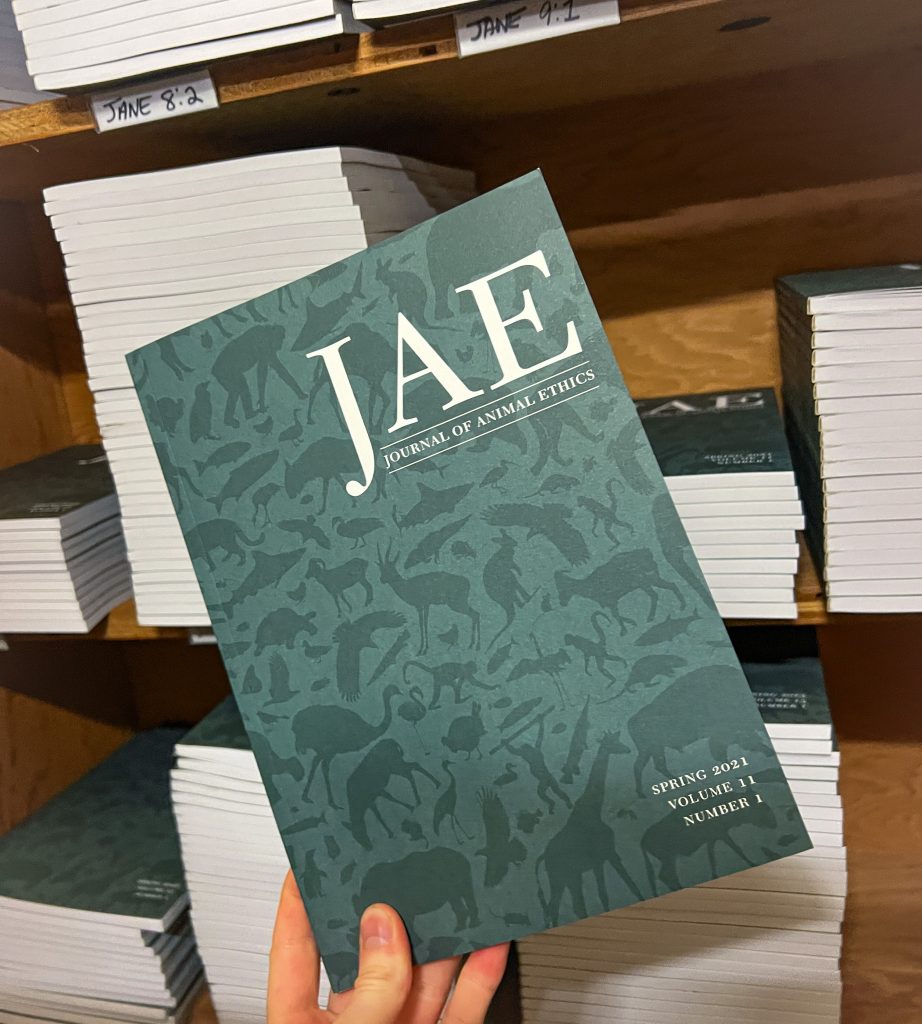
Editors of Journal of Animal Ethics, Revd. Professor Andrew Linzey and Dr. Clair Linzey, have recently published a new book on the relationship between animals and religion entitled Animal Theologians. The book brings together a variety of different theological perspectives—including Jewish, Unitarian, Christian, transcendentalist, Muslim, Hindu, Dissenting, Deist, and Quaker voices—and considers the role of animals in these traditions.
Read on for a Q&A with the editors and a reading list of theology focused articles from the Journal of Animal Ethics.
Q: How do you feel your work editing the Journal of Animal Ethics influenced or inspired the research and work that went into editing this book?
A: Well, it has been remarkable how the whole field of animal ethics has opened up over the last 10 years. Not just in theology but in many disciplines—law, sociology, history—to take just three examples. Editing the Journal of Animal Ethics has put us in touch with literally hundreds of animal-minded scholars throughout the world.
Q: This book brings the discipline of theology into the conversation around animal ethics, a theme that has also been present in the Journal. What other fields lend themselves to interdisciplinary work alongside animal ethics, and are there specific recent articles that showcase these connections?
A: To take just one example: an enterprising doctoral student at Oxford produced a groundbreaking article on animal history, that is, looking at history from the perspective of other creatures. Normally, history as a discipline is wholly anthropocentric and takes little or no interest in non-human beings. But even in this traditional bastion of anthropocentrism, changes of attitude are taking place.
Q: After this project, will you be keeping an eye out for theology-focused articles to publish in Journal of Animal Ethics? Are there any other topics that you feel are relevant for the field that you’d like to see more often in submissions?
A: We are an ethics journal, but wholly multidisciplinary, so we publish work from many perspectives and from scholars around the world. We do not privilege any one area, though we obviously have an interest in theology because it is our specialist field. We especially like to publish pieces from up-and-coming scholars, as well as established names. I suppose we would most like to see more articles on practical as well as theoretical topics in animal ethics.
Recommended Reading
“Zoroaster and the Animals” by Randall E. Otto
Featured in Volume 11, Issue 2 of Journal of Animal Ethics, this article discusses the status of animal under Zoroastrianism. Religion is often criticized for failing to uphold animal concerns, yet Zoroastrianism, an ancient religion that underlies the Abrahamic traditions as well as Eastern religions, offers some strikingly contemporary concerns regarding the kinship of human and nonhuman animals. Human and nonhuman animals alike have souls, free will, and life after death.
“Biblical Veganism: An Examination of 1 Timothy 4:1–8” by Marcello Newall
1 Timothy 4:1–8 is often used as a proof text against veganism, especially among certain fundamentalist Christian groups and conspiracy theorists. This article, featured in Volume 11, Issue 1 of the Journal, rebuts this idea and argues that true Christian holiness does not consist in the harsh mortification of the body but in an inner holiness based on love and faith in the incarnation, death, and resurrection of Christ. Ultimately, veganism, far from being anti-Christian, as God’s original ideal, can be seen as a sign of hope pointing to the coming of the Kingdom of God and the restoration of creation beyond all violence, suffering, and death.
“Between the Bible, the Midrash, Philosophy, and Kabbalah: Ethics and Animals in the Writings of the Maharal of Prague” by Idan Breier
This article from Volume 10, Issue 2, explores the association between animals and ethics in the teachings of Rabbi Judah Loew of Prague, famously known as the Maharal of Prague (1525-1609). Breier examines the Maharal and the nature of his writings, how the Maharal viewed the essence of animals and their place in the act of creation, and the Maharal’s ethical approach toward animals.
“Can Christian Worship Influence Attitudes and Behavior Toward Animals?” by Jennifer E. Brown
Brown reports on the findings of a pilot study that explored the relationship between the style and content of Christian worship and behavior in related ethical areas in Volume 9, Issue 1. Statistically significant correlations were found between the inclusion (or in this case noninclusion) of animal welfare in church worship, private prayer, and related charitable giving.
Find Out More
The Journal of Animal Ethics is the first named journal of animal ethics in the world. It is devoted to the exploration of progressive thought about animals. It is multidisciplinary in nature and international in scope. It covers theoretical and applied aspects of animal ethics — of interest to academics from the humanities and the sciences, as well as professionals working in the field of animal protection. The Journal is published by the University of Illinois Press in partnership with the Ferrater Mora Oxford Centre for Animal Ethics.
- Individual subscriptions can be made through the University of Illinois Press website.
- To recommend this title to your library, fill out this Library Request Form and provide to your library via email or in person. Many institutional libraries also have an online form you can fill out on their websites.
- Ready to see your work featured in Journal of Animal Ethics? Submit original scholarly work here.
